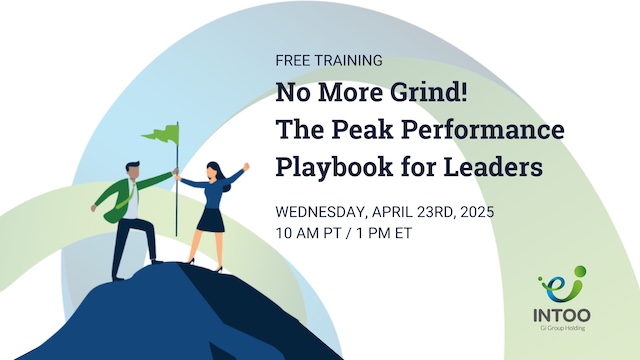People management, a responsibility of Human Resource Management (HRM) involving strategies for recruiting, retaining, engaging, and training employees, is vital for an organization to perform at its best. Having effective processes in each of these areas of the employee experience helps a business to gain the greatest benefit from its most vital resource—its people. HR works with department leaders to facilitate these processes and develop and guide their teams using them. In this article, we discuss the skills needed for successful people management, whether you are the one creating the processes or a manager employing them.
How Does Successful People Management Improve Company Culture?
The success of any organization hinges on its people, and how these people are managed shapes the very foundation of the company culture. When implemented effectively and consistently across the organization, people management strategies act as a catalyst, transforming a work environment into a thriving ecosystem of engaged and motivated individuals.
Communication is at the center of these processes. Regular feedback sessions, clear goal setting, and accessible leadership create a foundation of trust and transparency. This open stage allows ideas to flow freely, fostering collaboration and knowledge sharing.
Also, successful HR and people managers recognize the unique potential within each team member and actively cultivate processes and opportunities for growth and development. This goes beyond simply assigning tasks; it involves providing the necessary resources, training, and mentorship to equip individuals with the tools they need to thrive. Employees, in turn, feel empowered to take ownership of their work, explore their capabilities, and contribute meaningfully to the organization’s success. This cultivates a positive company culture of continuous learning and innovation, benefiting both the employee and the company.
Likewise, appreciation fuels a positive work environment, and successful people management acknowledges and celebrates individual and team achievements, both big and small. Recognizing accomplishments reinforces desired behaviors and motivates employees to go the extra mile.

7 Must-Have People Management Skills to Master in 2025
Effective people management is necessary to organizational success and there are specific skills that are crucial to fostering engaged, productive, and thriving teams. Here are 7 must-have people management skills that will empower you and your organization’s managers to lead with impact:
1. Empathy
Great leaders can step into their team members’ shoes, recognizing and acknowledging their emotions, perspectives, and challenges. This fosters trust, open communication, and a sense of belonging, ultimately leading to increased engagement and motivation. Imagine an employee struggling with a personal issue. Instead of simply focusing on deadlines, an empathetic manager would offer flexible work arrangements or emotional support, demonstrating care and understanding. This, in turn, strengthens the employee-manager bond, fostering loyalty and a willingness to go the extra mile.
2. Effective communication
Clear, concise, and two-way communication is the cornerstone of successful people management. Important aspects of communication in the workplace include active listening, timely feedback, and ensuring everyone feels heard and valued. Regular team meetings, open-door policies, and accessible leadership create an environment of transparency and trust where employees feel comfortable sharing ideas and concerns. Picture a manager who actively solicits feedback from team members during project planning. This open communication leads to better-informed decisions, increased buy-in, and a sense of ownership among team members.
3. Delegation
Micromanagement is a surefire way to stifle creativity and motivation. Effective people managers understand the importance of delegating tasks based on individual strengths and development goals. This empowers employees to take ownership, learn new skills, and experience a sense of accomplishment. Imagine delegating a complex project to a team member with the potential to manage it independently, while you provide necessary support and guidance. This empowers the individual, fosters their professional growth, and builds their confidence, ultimately benefiting both the employee and the organization.
4. Adaptability
Change is the only constant in today’s world, and successful people managers are adept at navigating it with their teams. This includes embracing new technologies, adjusting to evolving work models, and being open to feedback and different perspectives. By fostering a culture of adaptability, managers create an environment where employees feel safe to take calculated risks, experiment with innovative solutions, and embrace new opportunities. Picture a manager who readily adopts a new communication tool based on employee feedback. This adaptability demonstrates a willingness to listen and improve, leading to increased employee satisfaction and a more agile organization.
5. Conflict resolution
Disagreements are inevitable, but skilled people managers know how to turn them into opportunities for growth. Effective conflict resolution involves active listening, identifying underlying concerns, and facilitating open and respectful dialogue. By helping team members find common ground and develop solutions collaboratively, managers create a culture of trust and psychological safety where diverse perspectives are valued and healthy debate is encouraged. A manager who skillfully mediates a conflict between team members, focusing on understanding the root cause and finding a mutually agreeable solution, resolves the immediate issue, strengthens team dynamics, and fosters a more collaborative environment.
6. Recognition and appreciation
Recognizing and appreciating achievements—both individual and among teams—is essential for boosting morale and motivation. These can be accomplished through verbal praise, public recognition, or tangible rewards. By acknowledging contributions and celebrating successes, managers create a culture where employees feel valued, appreciated, and motivated to go the extra mile. For example, when a manager publicly recognizes a team member’s innovative solution during a company-wide meeting, the public appreciation fosters a culture that encourages collaboration and innovation.
7. Continuous learning
Effective people managers are committed to continuous learning, both for themselves and their teams. This involves attending training programs, encouraging professional development, and creating a culture of knowledge sharing. By investing in learning and development, managers give their teams the resources they need to develop the soft skills and knowledge they need to thrive in the ever-changing workplace. Think of a manager who regularly encourages team members to attend industry conferences and workshops. This commitment to continuous learning benefits individual growth ensures the team stays ahead of the curve, and maintains a competitive edge.
Take Your Business to the Next Level by Improving Your People Management Processes
By investing in effective people management, you invest in your company’s success. Mastering these essential skills will help you cultivate a thriving team, foster a positive culture, and drive your business to the next level. Remember, people are your most valuable asset. Lead with intention, empathy, and purpose, and watch your team and your business soar.
Looking for additional ways to help your managers and employees develop their skills and careers with your organization? INTOO offers a variety of career development programs, including career coaching, workshops, and trainings for every level of your workforce. Contact us today to learn more.











